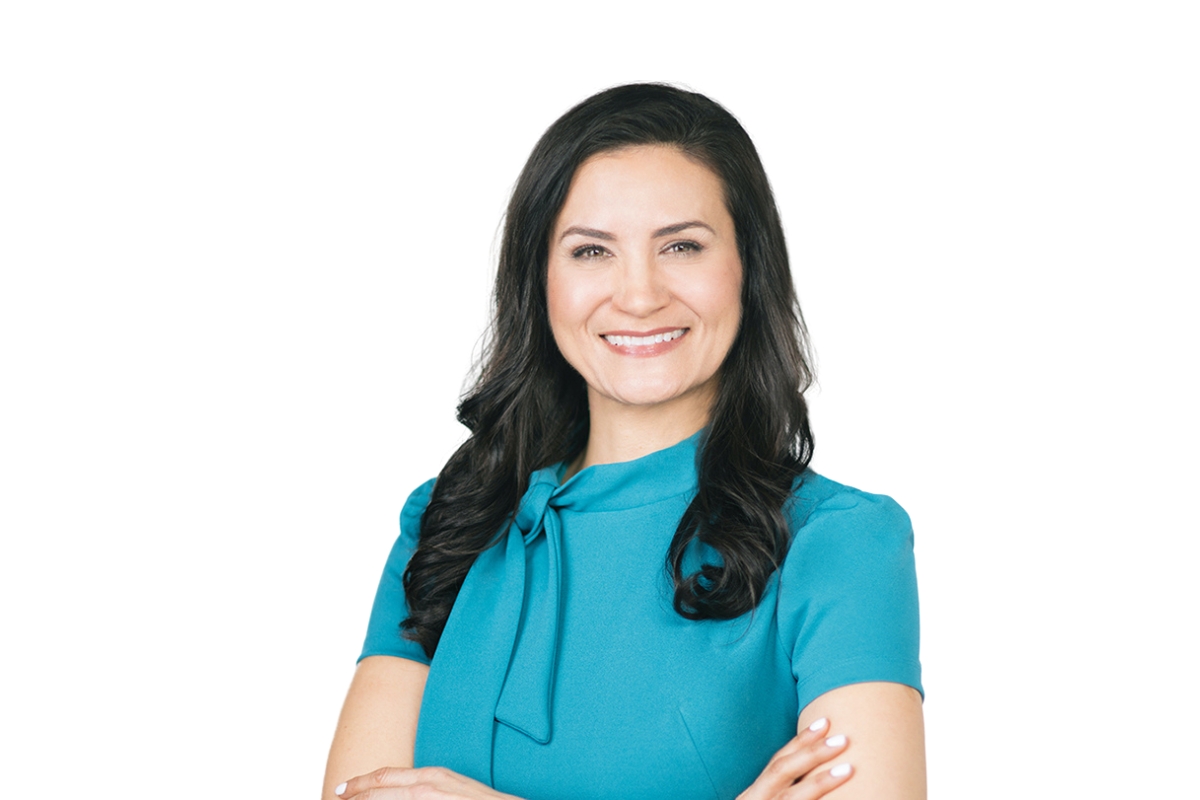Peter Williams, a Jamaican-Canadian actor known for his exceptional talent, is synonymous with artistry and charisma in entertainment. Williams has made an enduring mark on film and television throughout his decades-long career, captivating audiences worldwide.
Fueled by a passion for the performing arts, Williams began his acting journey with willpower, propelling him toward enduring success. His fusion of Canadian and Jamaican heritage contributes a rich tapestry of experiences and perspectives to his craft, making him a quintessential representation of the entertainment industry’s diverse and global nature.
Williams has embraced many roles throughout his career, each testament to his range and depth as an actor. Whether portraying the enigmatic Apophis in the science fiction series Stargate SG-1 or Sniper in The Chronicles of Riddick, his ability to embody complex characters consistently leaves audiences in awe.
Beyond his filmography, Williams inspires aspiring actors, particularly those from underrepresented backgrounds—his journey illuminates perseverance and talent in an industry that often demands stamina and resilience.
In this exclusive interview, we delve into the life and experiences of Peter Williams, exploring the highlights of his career, his impact on fandom, and his advocacy for social and cultural issues, uncovering surprising anecdotes that will leave you eager to learn more.
Could you share some insights into your background and the specific experiences or influences that sparked your passion for pursuing a career in acting?
I hail from Jamaica, where I received my early education before venturing to England for further studies. I earned a BA in Geography and Archaeology, which is far from acting. After completing my studies, my family relocated to Canada. Since arriving in 1981, I’ve lived in various Canadian cities, including Ottawa, Toronto, and Vancouver, and am now back in Ontario. My enthusiasm for the craft took root following my university years when I unearthed and cultivated a love for stage and screen.
Among the array of roles and projects you’ve undertaken, can you share one that has left a lasting impression on you personally and professionally? What sets it apart as a memorable experience?
Selecting a single role from my diverse portfolio is quite challenging, but one that holds a special place in my heart is “Soul Survivor.” My brother, Stephen, was the creative force behind this project, rendering it a profoundly personal journey. In 1995, we both garnered Genie nominations for our contributions to this film, which made it an unforgettable experience.
Another remarkable project was “Neon Rider,” a long-standing CTV series where I had the privilege to speak with my natural accent throughout its five-season run. Additionally, “Stargate SG-1” stands out as a career milestone. This internationally acclaimed sci-fi series afforded me a global viewership due in part to its dedicated fanbase.
How do you prepare for a new acting role, particularly demanding characters like Apophis in “Stargate SG-1” and Sniper in “The Chronicles of Riddick”?
Preparation for roles such as Apophis in “Stargate SG-1” necessitated distinct approaches. For Apophis, it entailed a substantial physical transformation. I transitioned from sporting dreadlocks, which I had grown over five years while working on “Neon Rider,” to being bald to accommodate the prosthetics required for “Stargate.”
On the other hand, “The Chronicles of Riddick” required rigorous gym workouts to match Vin Diesel’s character’s physicality. Interestingly, my character in this film had quite a fascinating story behind the name Sniper.
During the movie’s production, I was in a scene centered around a prison break led by Riddick (Vin Diesel). To create real characters, the Director, David Twohy, encouraged the cast to create character names and backstories for our incarcerated personas. Drawing inspiration from the news at the time, which focused on the Washington, DC, sniper shootings, I chose the name “Sniper,” a young Jamaican who remains incarcerated for those crimes.
How do you maintain authenticity in your performances, especially when portraying characters with intricate backgrounds and motivations?
Sustaining authenticity in performances is a delicate yet indispensable aspect of acting, particularly when embodying characters with multifaceted backgrounds and motivations. It hinges on what I refer to as the three “R’s”: research, rehearsal, and relaxation. These three elements harmonize to create a performance that respects the character’s complexity and resonates with audiences by delivering genuine and compelling portrayals.
Research is the cornerstone for understanding a character’s history, motivations, and context. It entails delving deeply into the character’s backgrounds, exploring their past experiences, and knowing the world they inhabit.
Rehearsal is pivotal in translating research into a tangible performance. It involves internalizing the character’s traits, behaviours, and mannerisms, authentically bringing the character to life on screen or stage.
Relaxation ensures authenticity. When an actor is relaxed, they can fully inhabit the character without self-consciousness or inhibition. It’s about being in the moment and allowing the character’s emotions to flow naturally.
Who are some actors or directors who have significantly influenced your approach to acting?
Numerous actors and directors have significantly influenced my approach to acting. Sidney Poitier, a trailblazer who shattered industry barriers, has been a profound influence. Denzel Washington’s exceptional craftsmanship as an actor has been a continuous source of inspiration. In recent years, I’ve admired the work of talents like LaKeith Stanfield and Mahershala Ali. Additionally, as a Jamaican actor, I must acknowledge the influence of Perry Henzell, the Director of “The Harder They Come.”
As a Jamaican Canadian actor, have there been distinctive challenges or opportunities related to your cultural heritage in your career that you’d like to share?
Navigating a career as a Jamaican-Canadian actor has presented challenges and opportunities linked to my cultural heritage. While the industry has made strides toward diversity and inclusivity, it’s crucial to recognize how one’s cultural background can impact one’s journey in acting.
One notable challenge I’ve encountered is the industry’s inclination to default to American accents and mannerisms. This tendency stems from the pervasive influence of American media worldwide. Consequently, actors with unique cultural backgrounds, such as myself, may encounter a form of “exoticism.” Producers and directors may perceive non-American actors as exotic or foreign, potentially resulting in typecasting or limited opportunities.
Yet, there’s a flip side to this challenge. Embracing my cultural heritage has opened doors to distinctive and compelling roles. Canadian cinema, in particular, is beginning to produce narratives that reflect the rich tapestry of its multicultural society, offering actors like me the chance to explore characters with authenticity.
Tell us about your experience working on “Stargate SG-1” and how your character, Apophis, impacted the show and your career.
Portraying Apophis, a formidable antagonist, allowed me to embrace the “bad guy” role. One of the fascinating aspects of playing a character like Apophis is the mythology behind this multi-layered nemesis. Apophis was not a one-dimensional villain; he had depth, motivations, and a rich backstory.
Apophis became an iconic character within the “Stargate” universe, known for his commanding presence and intricate storyline. The show’s dedicated fanbase appreciated the qualities I brought to the character, contributing to the series’ success. The role of Apophis expanded my visibility in the industry and introduced me to a broader audience, impacting my career trajectory.
“Stargate SG-1” has a dedicated and passionate fan base. Could you share your experiences interacting with show fans and how you believe this contributed to the series’ enduring popularity?
Engaging with the devoted “Stargate SG-1” fanbase is a remarkable experience. Their passion and enthusiasm for the series have inspired and motivated me. Witnessing the depth of fans’ connection to the show is incredible. Whether at conventions, fan events, or online interactions, connecting with fans allows us to understand first-hand the series’ impact on their lives.
The “Stargate” franchise continues to find new audiences. The science-fiction community is renowned for its unwavering loyalty, and “Stargate SG-1” benefits immensely from a passionate following.
The intricate Stargate universe and ongoing engagement with fans help to keep the series alive through spin-off series, fan-fiction and cosplay, solidifying its place in the sci-fi pantheon.
In “The Chronicles of Riddick,” you portrayed the character Sniper. What drew you to this role, and what challenges did it present for you?
My portrayal of Sniper in “The Chronicles of Riddick” was a unique opportunity that I was excited to embrace. What drew me to this role was the chance to be a part of a vast, larger-than-life science fiction universe. While not one of the central figures, the character Sniper had an intriguing presence in the story. It was a role that allowed me to experience the nuances of a supporting character within a complex narrative.
The aim was to balance Sniper’s distinctive characteristics and the film’s overall tone. The expanded Director’s Cut DVD mentioned Sniper’s name, adding to the character’s presence within the context of an action-packed sci-fi epic.
You’re significantly involved in Caribbean cinema, from “A Winter Tale” to “Hero.” How have your experiences in Caribbean filmmaking influenced your approach to acting?
I’m grateful to operate in the Caribbean film industry from Canada, strengthening the ties between the two countries I claim as mine. As the industry changes, I increasingly seek this opportunity.
“Hero” earned critical acclaim and even won an African Academy Award in Nigeria in 2019. Could you share your thoughts about this recognition?
“Hero“ has a docu-drama feel, with a large part of the story set in Africa. It was gratifying to win Best Diaspora Feature. I’m happy to be part of this important film and talented cast, which features the super-talented Nickolai Salcedo from Trinidad and British-based gentleman actor Joseph Marcell (Fresh Prince Of Bel Air), among others.
Can you elaborate on your role as part of the selection committee for Toronto’s Caribbean Tales Film Festival and its significance in promoting Caribbean cinema and culture?
In the first part of each year, we meet online weekly. We’re a panel of industry folks from Trinidad, Barbados, Jamaica, and Toronto who view all entries. We continue to grow, and it’s great to be heading into our 18th year.
How do you perceive the evolution of the film and television industry throughout your career, and how has it affected your work as an actor?
Throughout my career, the film and television industry’s evolution brought opportunities and challenges. I’ve witnessed significant shifts in the types of content produced and consumed by audiences. One noticeable change is the prevalence of sequels, remakes, and unregulated web-based content.
The emergence of independent and “indie” films has breathed new life into the industry. These projects often tackle unconventional and thought-provoking themes, allowing actors like me to explore diverse characters and narratives. It’s within the world of “indies” that I’ve discovered some of the most fulfilling and creatively stimulating work.
As an actor, it’s crucial to remain adaptable and relevant in an ever-shifting landscape, prepared to take on roles that may not fit traditional moulds and connect with audiences in innovative ways.
Considering the demanding nature of filming, what strategies have you employed to balance your professional commitments and personal life?
Balancing professional commitments and personal life can be challenging, particularly in the entertainment industry, which often demands long hours and extended periods away from home. I maintain a small, tight-knit support system of family and close friends.
I live in a somewhat rural environment, which provides a peaceful contrast to the bustling energy of the industry, but I visit the city to maintain professional connections and engagement. I have a deep passion for collecting and cataloging music, particularly Jamaican music. This hobby is a source of relaxation and personal fulfillment.
Could you provide insights into the audition process and how you approach auditions for different roles?
Self-taped auditions have become increasingly prevalent in today’s digital age. Once an audition is completed and submitted, it’s essential to be able to let go. Overthinking or dwelling on an audition can be counterproductive. Instead, I focus on giving my best performance at the moment and then moving onward with life.
Auditions for different roles require specific adaptability. It’s best to avoid prejudging any role and remain open to exploring diverse characters. Each audition is an opportunity to embrace a new persona and tell a different story, whether in a heroic or villainous role.
Ultimately, the character belongs to the story. My role is to bring my unique interpretation of the performance in service to the story as a whole.
How do you sustain your creative inspiration and motivation throughout your career? What challenges have you encountered in the industry?
That is an ongoing journey. The intrinsic drive comes from the sheer joy of acting. There’s a thrill in breathing life into a character and immersing oneself in storytelling.
Undoubtedly, the industry presents its share of challenges. Another significant hurdle is the prevalence of stereotypical roles, often labelled as “FBI guy” or “Cop #1.” These roles can feel formulaic and lack the depth many actors yearn for. Unimaginative genre pieces, constrained by well-worn character archetypes, can be disheartening.
Still, the industry’s challenges only underscore the importance of pushing boundaries and seeking roles that challenge me as an actor.
What is storytelling’s role in today’s society, and how does it influence your acting work?
Storytelling is a conduit for nurturing empathy and understanding. It allows us to put ourselves in others’ shoes, explore imagination and experience, and gain insights into the intricate facets of the human condition.
Among more recent projects, “A Winter Tale” and “HERO” underscore the significance of storytelling in addressing diverse and relevant themes. As an actor, it is a privilege to be part of projects that push boundaries beyond societal dictates while entertaining and engaging audiences simultaneously.
What guidance or wisdom would you impart to aspiring actors eager to make their mark in the entertainment industry, particularly those from diverse backgrounds?
The entertainment landscape is ever-evolving, and sometimes, the fresh perspectives of emerging talents offer cutting-edge insights that veterans can learn from. However, there’s no substitute for experience. Therefore, I advise aspiring actors, especially those from diverse backgrounds, to similarly cultivate diverse interests and develop empathy for individuals with different life experiences. It will not only foster humility but also stability. When you possess these qualities, the demands of getting and playing a role are less likely to distort your distinct personality.
Do you have any quotes or anecdotes you’d like to share with your fans and the audience?
Lemme think ’bout dat … 😉
Jennifer Williams | Editor-in-Chief




















